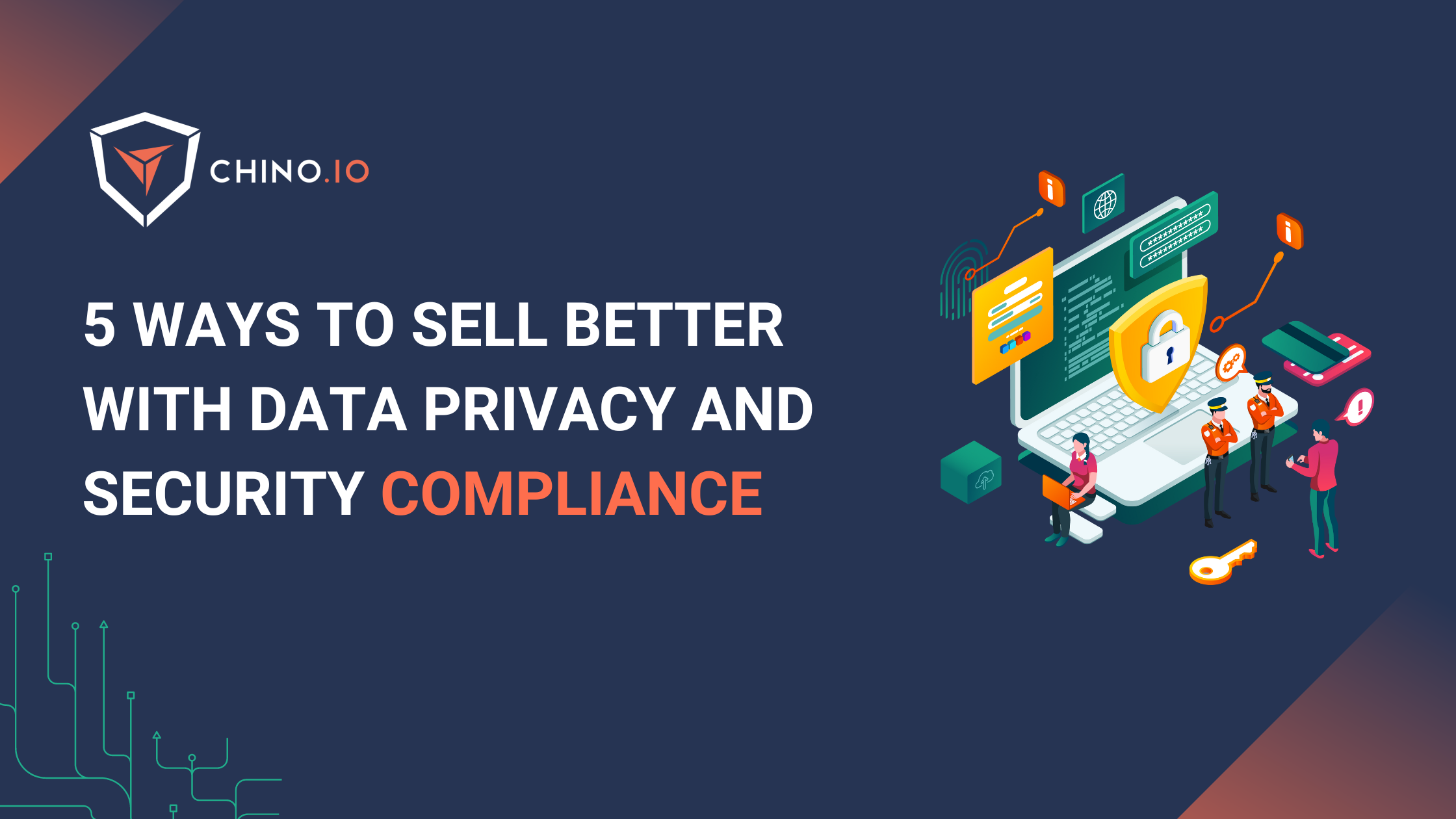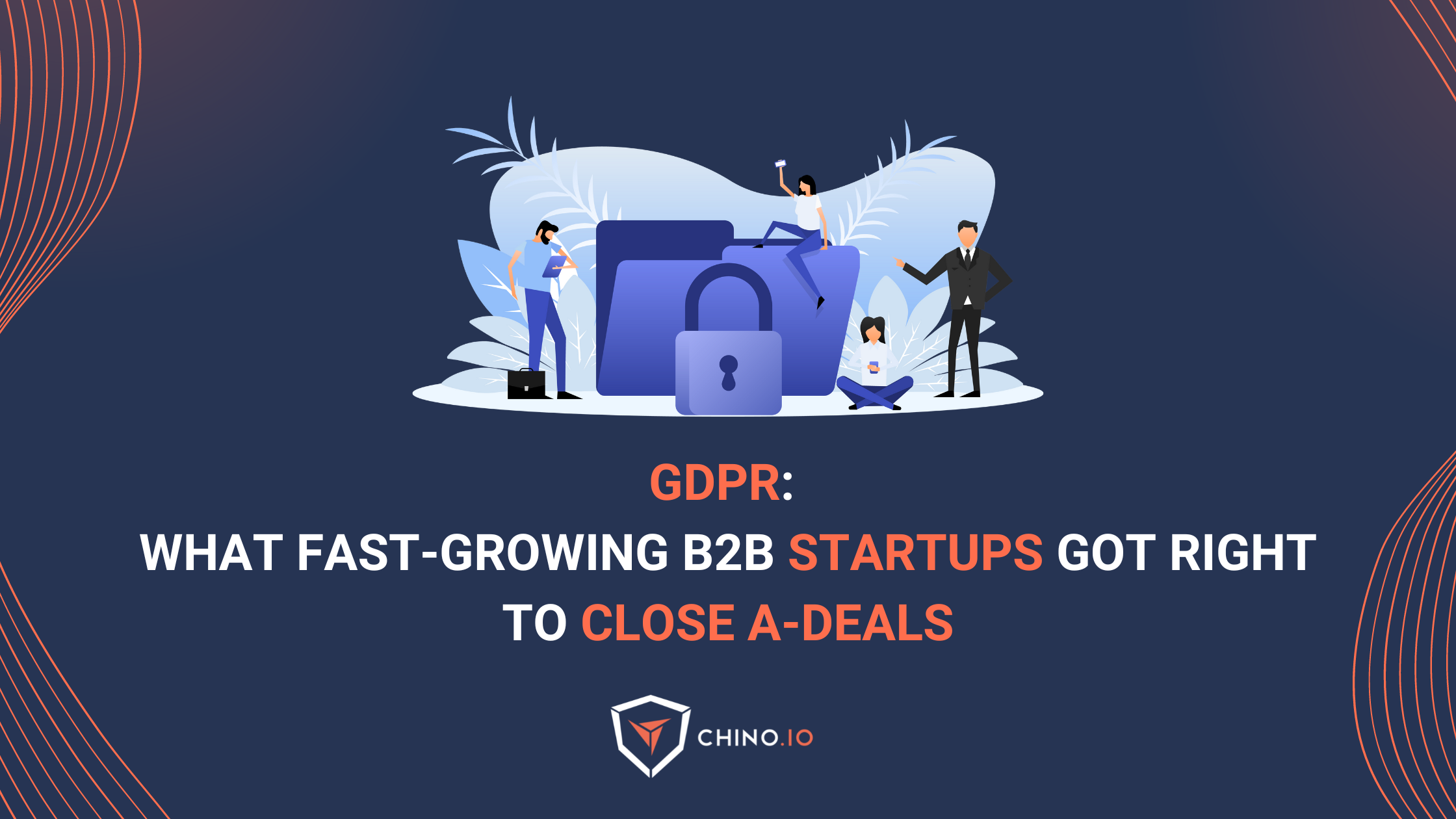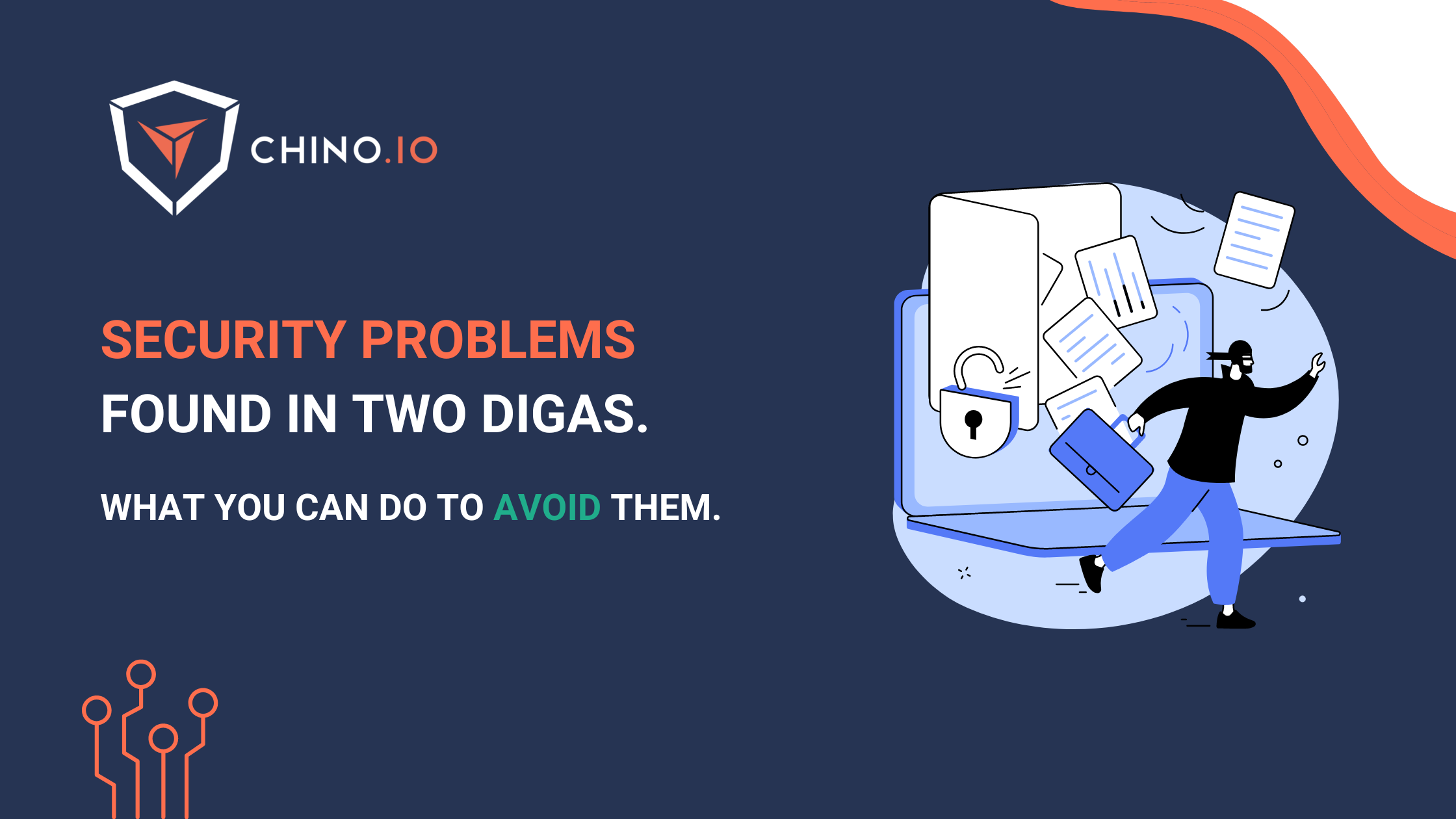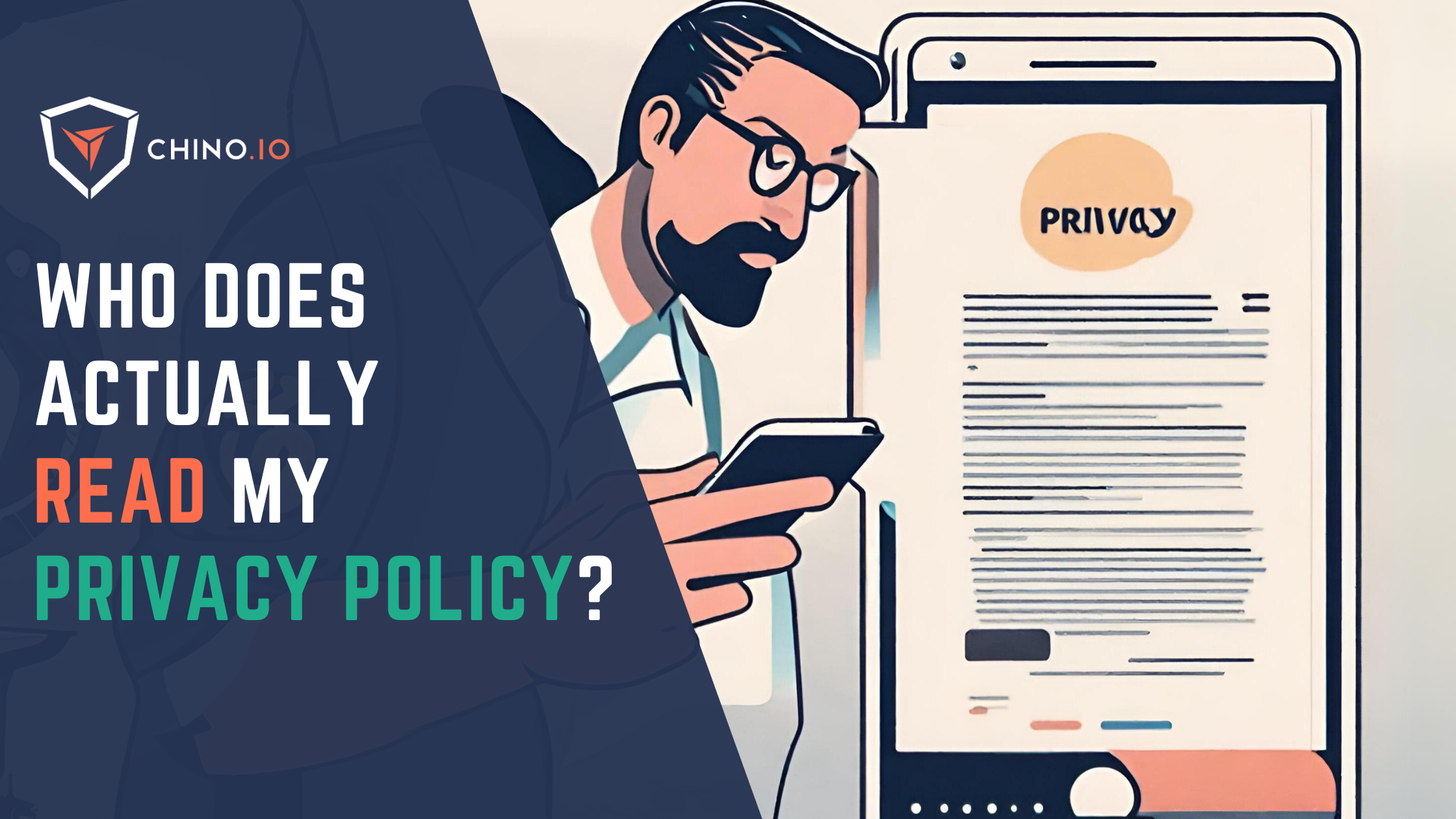If you are a B2B startup launching a product handling personal data, it is unlikely that risk is the primary reason why you take care of data protection, privacy, or data security.
During your business journey, you may come across several consultants telling you to be compliant to avoid massive fines and save your reputation from the bad press. Don’t worry, back in 2014 we also thought this was the biggest pain to avoid for our customers.
The truth is that most companies feel compliance pain for the first time when they try to close game-changing deals with key partners or clients. You can have the most disruptive product but if you are not able to prove you are compliant with the main regulations and requirements, you won't be able to sell it.
To sign a deal with a big company, there is a process called a Vendor Risk Assessment, where your potential partner will ask you hundreds of uncomfortable questions about how you will deal with the data they are providing you.
The truth is simple: your customers care about risks. Big companies and enterprises have much more exposure to fines than you do.
Your errors are their fines and PR scandals.
And when that time comes, you will need to give the right answers to sign that deal (and sometimes they are a game-changer for your business). So that’s the primary reason for compliance, protection and data privacy in the digital B2B landscape: selling.
Providing proof of your expertise and compliance readiness will strengthen your reputation and position your brand as a trustworthy partner for them.
If you don’t have your compliance set up right… Well, you may have some trouble closing deals and meeting investors’ expectations!
Misconceptions about data protection compliance
As most of you know, personal data (in healthcare, insurance, financial institutions, etc) is a highly regulated sector. And with the fast pace of regulatory changes, compliance is becoming more challenging than ever.
During the latest years, we have heard many misconceptions and distorted ideas about compliance. Here is a list of the most common ones:
- Compliance is easy and fast to implement and keep updated. It usually takes a lot of time and effort to identify and implement things that are specific to your product or app. Every product manages different data, and compliance means that you manage your data correctly. You should demonstrate that you have done your homework and that you are capable of implementing your plan and track measures. In addition, it must be a teamwork in order to reach a sufficient level of confidence in security and regulations. Often, drifting on regulations and standards can create misunderstandings and mistakes that can lead to consistent consequences for your business. A trusted partner can help you focus on the things that really matter and create a solid plan for reaching compliance status. And when everything is set, it all becomes easier.
- An Excel checklist will make you compliant. In the last few years, the game has become tougher. Partners and auditors are increasingly aware of the importance and risks that personal data carry. It is commonplace today that in Vendor Risk Assessments you are not only asked to provide your certifications and risk assessments, but also actual proof that proper security and privacy measures are in place. For example, we recently helped a B2B startup closing a deal with a major pharmaceutical company to pass a vendor risk assessment where they were required to provide samples of their audit logs to check for data minimisation and traceability. As you can see, a checklist will help you to prove your compliance but it won’t make you compliant. Moreover, most of the time, checklists are not written in detail as proper user requirements and user stories and thus will not provide the clarity your team need.
- Once you achieve compliance, it’s done, no more work is needed. As said above no company is 100% compliant, ever. You need to stay updated on regulatory changes and not stay complacent upon achieving compliance. The German DTx regulation (DVG) updates requirements every 3-4 months since its establishment in 2020. The truth is that compliance is an ongoing series of risk assessments and improvements. Your clients WILL care about how often you run risk assessments, and particularly when was the last time you did it. Your whole team needs constant work and updates, and this means that compliance is a continuous process that you need to iterate constantly. It’s not a one-off-to-do list.
Overall, compliance is a key ingredient for B2B data products. It’s key for you to be able to sell your product, sign partnership agreements and deals to grow your business and deliver safe products to your customers (and gain trust from users).
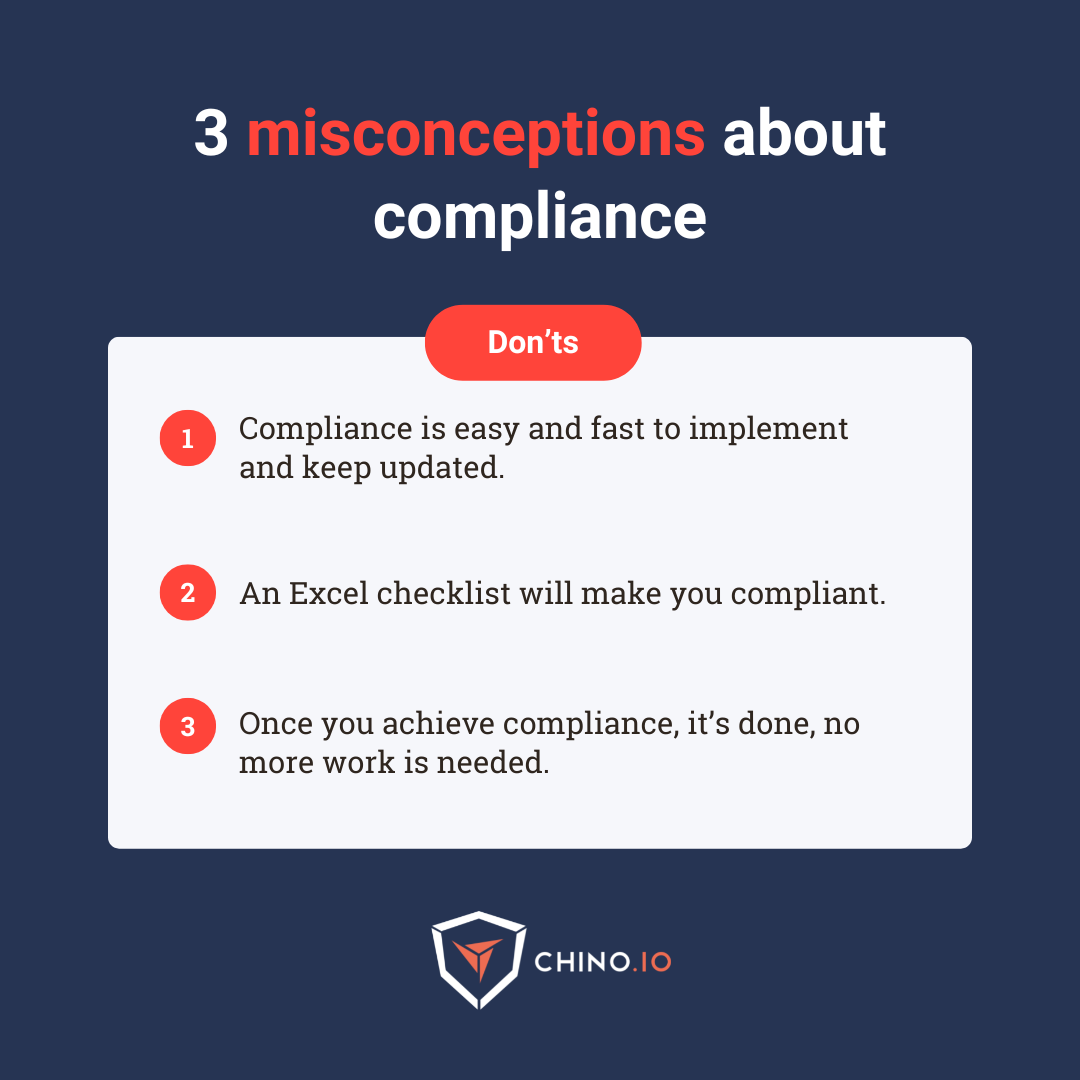
Have you found yourself in one of the misconceptions? Talk to our compliance experts for free.

5 key points to strengthen your business reputation by proving your compliance
In the last years, we have helped and supported several companies - from early-stage startups to large organisations - in implementing compliance and solving data security and legal compliance issues for their digital products.
Regardless of the origin of any regulation that requires compulsory compliance, it generally serves to benefit and protect your company, stakeholders and customers, making it critical that you develop a strong compliance roadmap and ensure that everyone in your team is aligned and on board.
- Talk to customers to understand what their data protection and compliance expectations are. When you are dealing with personal data, privacy and security will be big deals for you early on because they will be requirements to sign your first deals. As with every other requirement, the best thing is to learn about them by talking to your customers. In the EU, they will definitely require GDPR compliance, and then in each country, there may be extra requirements to consider. Even if you don't sell in the EU but you are an EU company, they may require you to be GDPR compliant. Validate this early on to avoid surprises when they send you their vendor risk assessments.
- Plan a compliance roadmap starting from GDPR: the easiest way to start with compliance is by implementing GDPR basics from day 0. National and international regulations like MDR bring additional data security, privacy, and overall data management conditions. However, the starting point is always GDPR. This regulation has strong implications for digital products' architectures due to its important technical depth. Be aware that it takes time to get this done, and trusted partners can help you speed up this stage.
- Plan ahead the effort needed: lack of knowledge on the topic or missing the real scope of compliance can lead your company to underestimate the real effort needed to get compliance set up. You should continue to engage in ongoing risk assessment, focus on ensuring security and use proactive measures.
- Conduct a compliance risk assessment. It sounds complex, but it isn’t that much. For companies considering the development or improvement of a digital product, it’s critical to assess potential risks across regulatory, cybersecurity, privacy, and safety, to list a few of them. A key variable to the risk profile is the product’s anticipated regulatory pathway. Speed and agility are crucial to the successful design, development, and deployment of digital assets; therefore, active engagement of risk advisers able to partner with product teams is critical.
- Save time with existing solutions: Evaluate existing services, infrastructure and partners. Manufacturers should understand where existing control structures can manage risk and where controls are either not fit for purpose or insufficient. Digital assets challenge companies and startups to evaluate and evolve their infrastructure. Keep in mind that most of the time, regulatory and compliance frameworks have not necessarily been developed or updated to reflect the digital revolution.
This leads us to the main point: it is crucial to maintain and increase trust from your customers and partners in order to be competitive and gain new market shares. As companies dive into the digital era, they should look to protect, and even enhance, trusted relationships across the health ecosystem. Privacy, security, and compliance are key responsibilities of asset developers. Not only is the company’s reputation at stake, but so is the trust of users and providers.
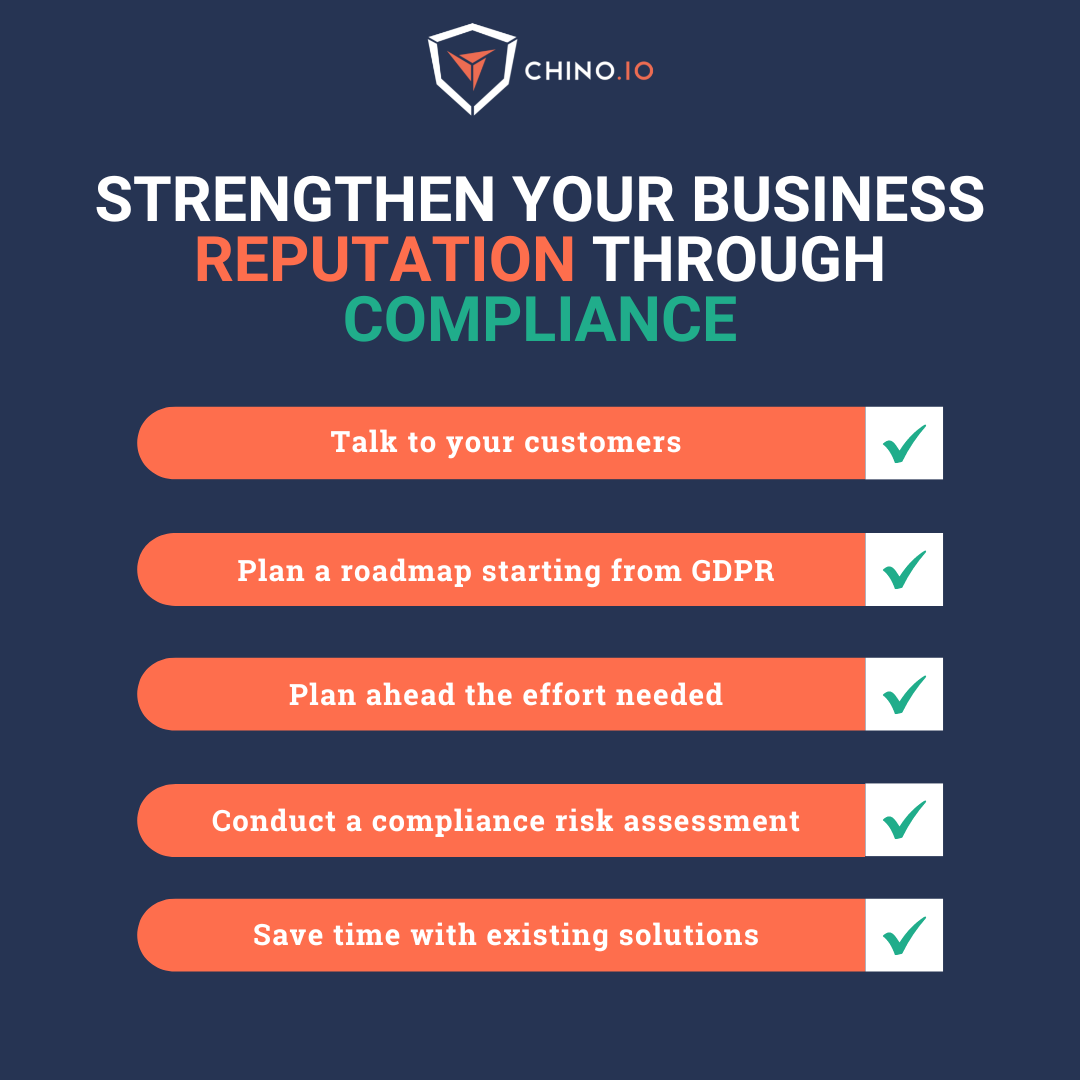
How Chino.io can help you
The regulatory framework is evolving very fast, and so is the availability of market opportunities for your business.
Time-to-market and efficiency are the key points to be able to compete with lower price points, higher Value for your customers and innovation. Collaborating with trusted partners like Chino.io that can leverage your efforts and support you in your journey with strategic contributions.
As a partner of our customers, we combine regulatory and technical expertise, with a modular IT platform that allows digital applications to eliminate compliance risks, save costs and time.


